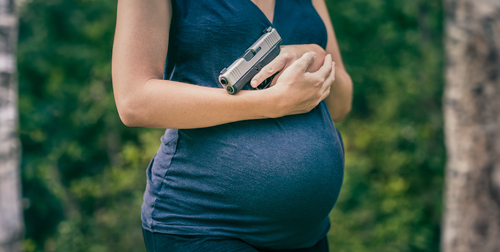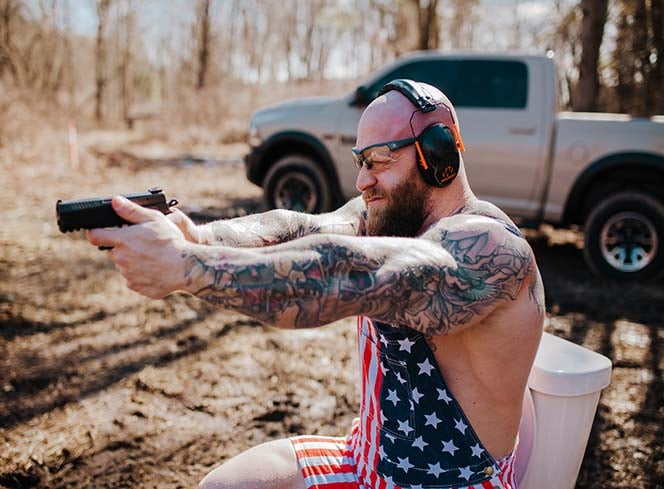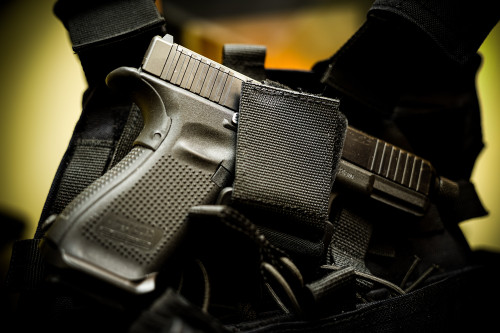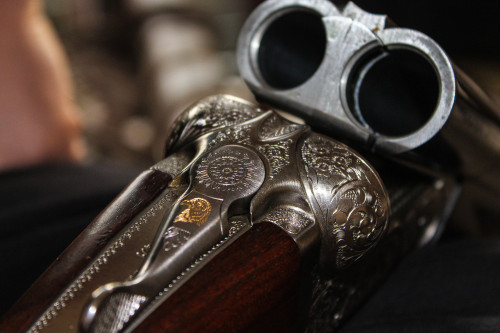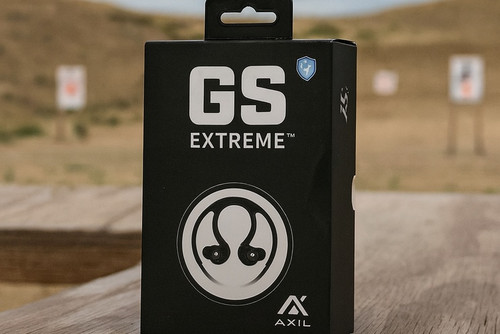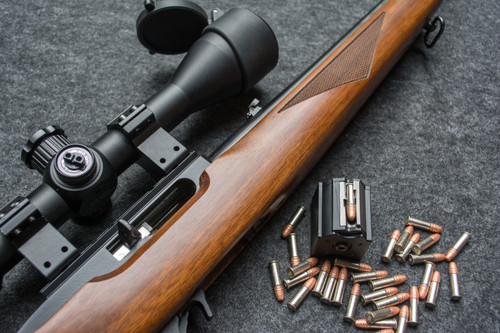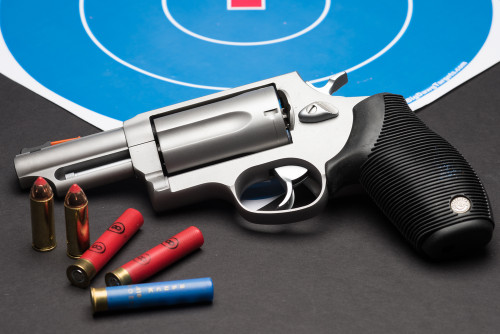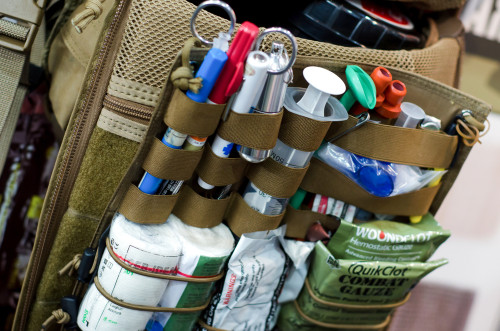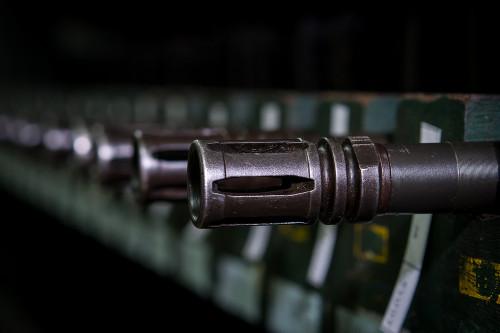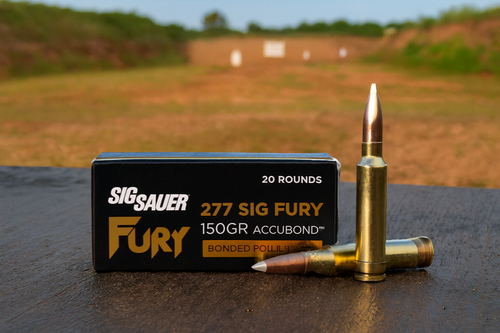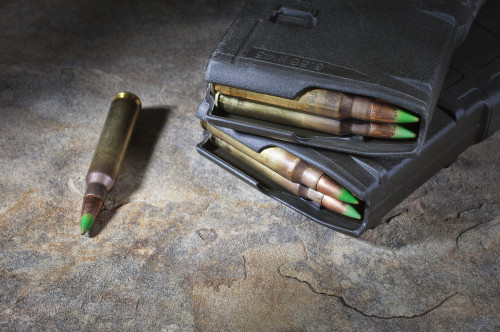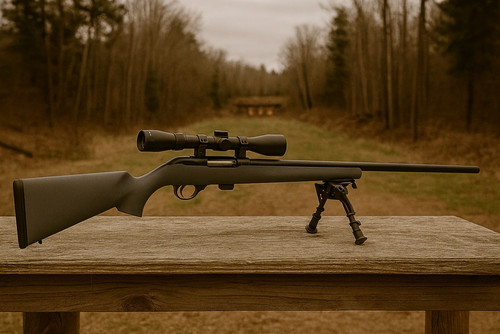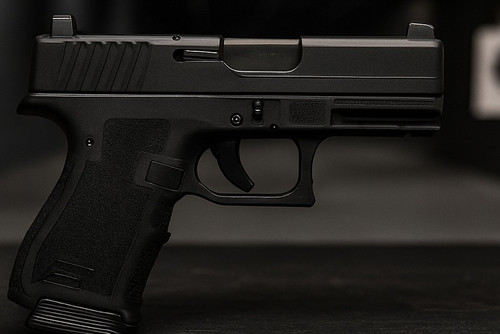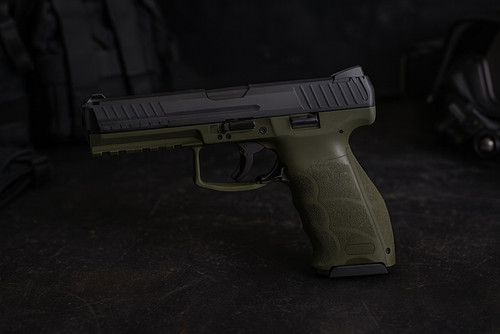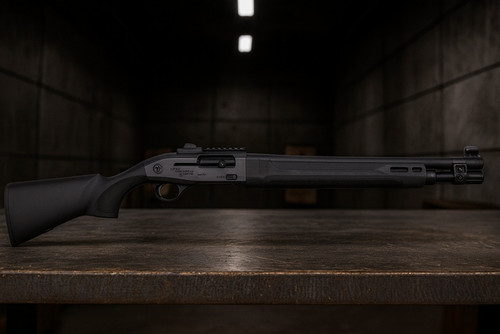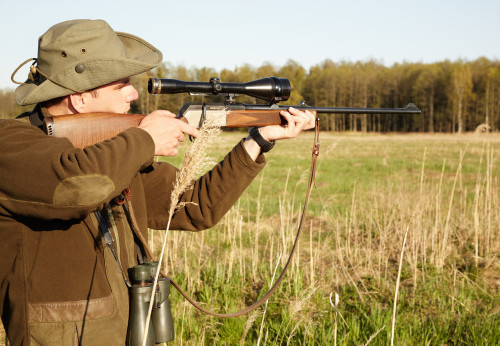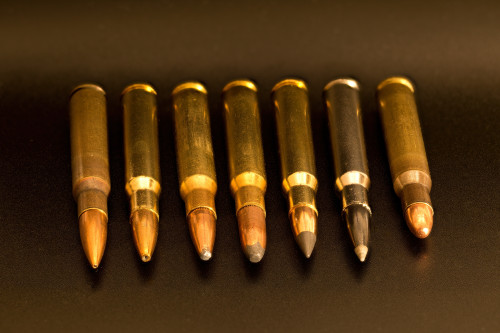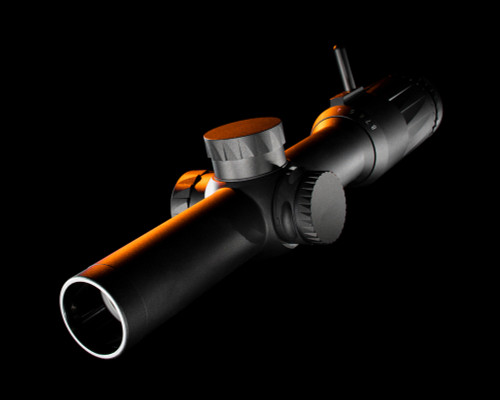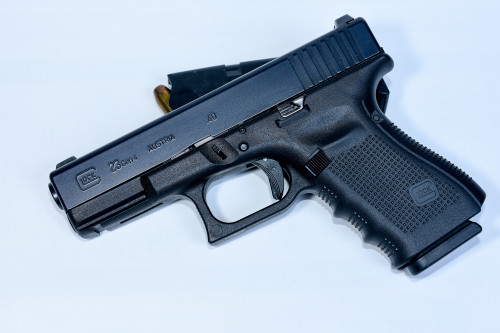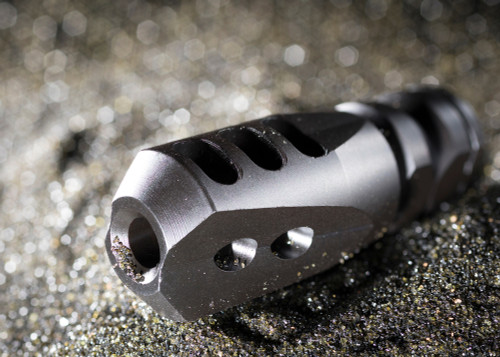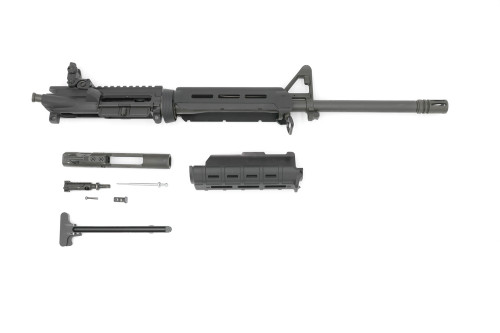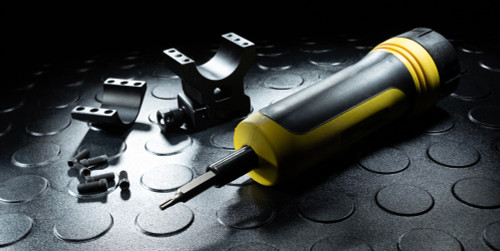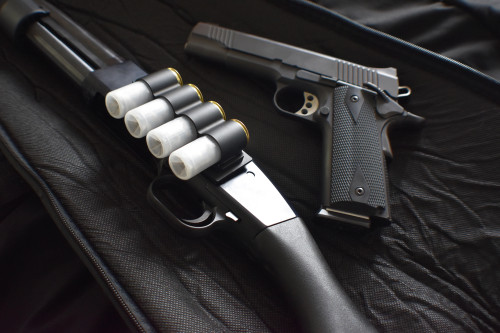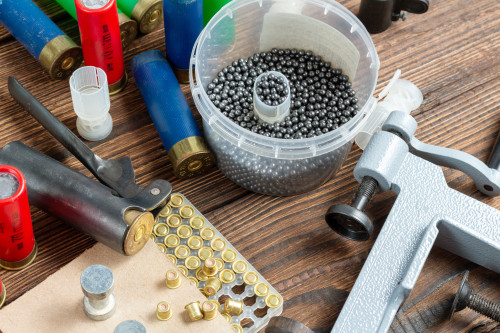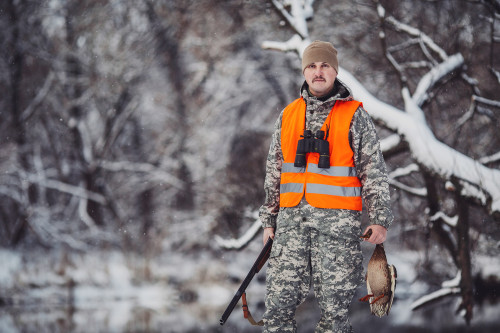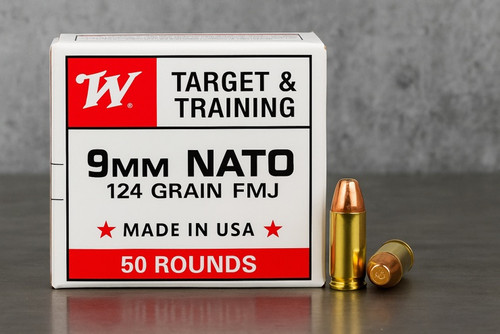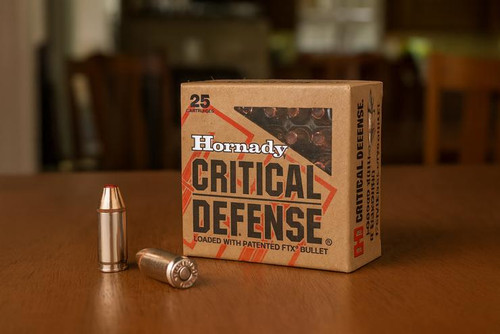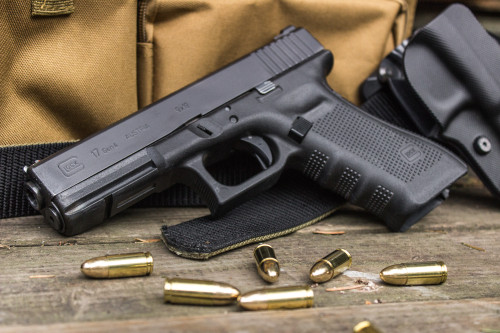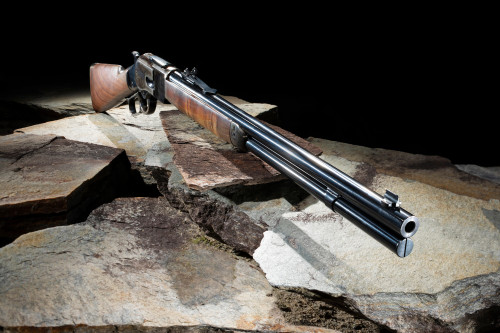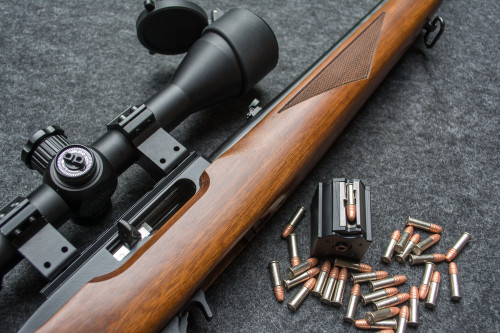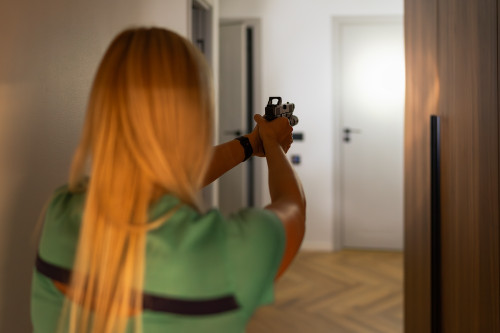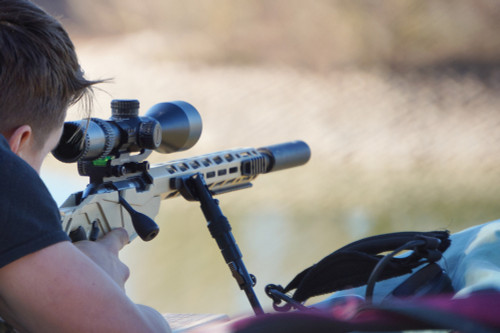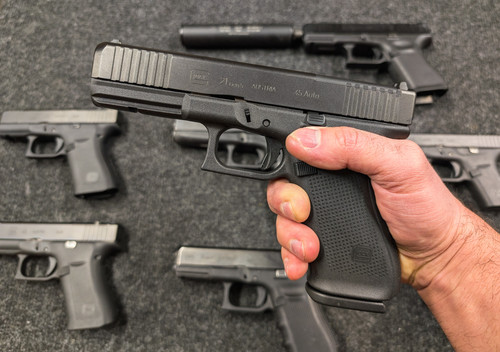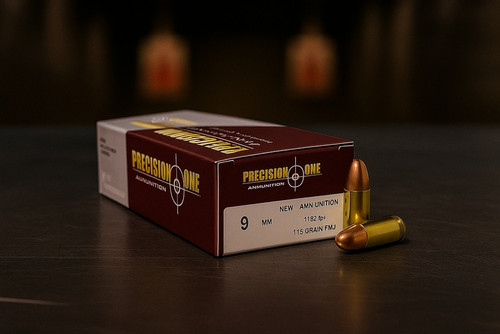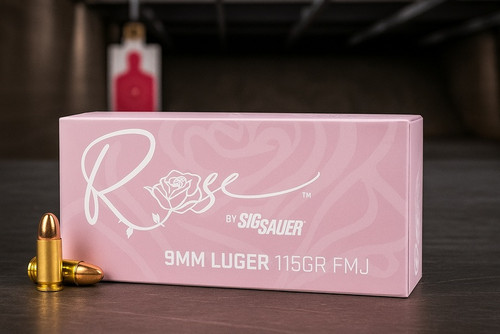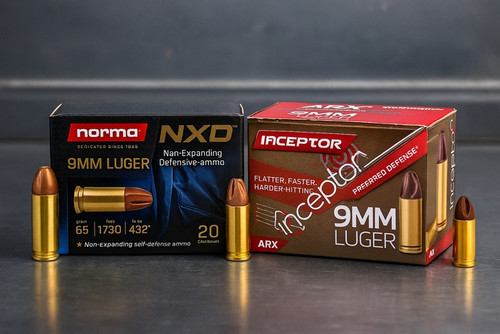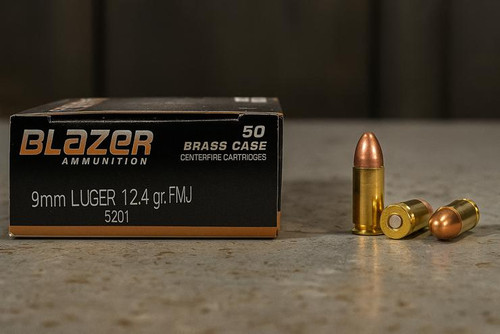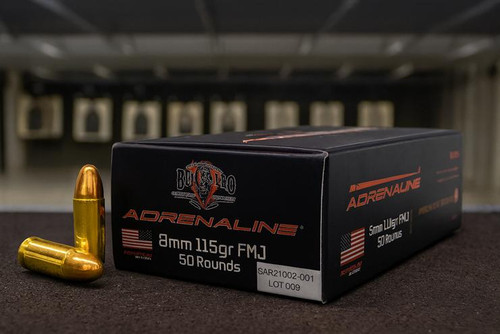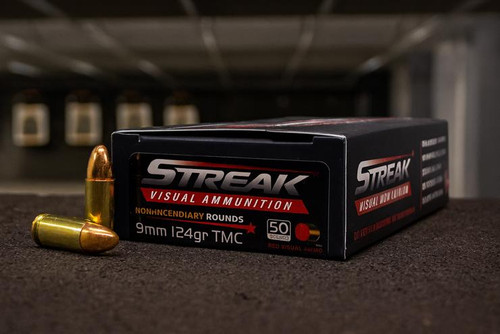Pregnant women are some of the most vulnerable humans on the planet. But just because they’re carrying a child, does that mean they can’t carry heat?
Violent crime has been on the rise, and criminals are always inventing new ways to terrorize people. Pregnant women want to protect themselves from potential threats. As we know, the best method for self defense is a concealed firearm.
But a mother isn’t the only vulnerable party during a pregnancy. An unborn baby is defenseless, too. Ironically, the very thing that can protect a pregnant woman (i.e. a firearm) can actually harm the child, even if the child isn’t directly attacked.
Training is also a factor here. Even if the gun is only used in emergencies, anyone who carries one for self-defense should have some kind of range training. What kind of damage could the sound of repeated blasts of a 9mm do to a baby in the womb? What about the lead exposure from the mother fumbling with ammunition?
We’re here to explore these ideas and provide some clarity. Let’s answer common shooting questions for pregnant mothers and look at safety measures they can take to further protect the baby.
Disclaimer
This article does not constitute medical advice. We’ve compiled research here to help you make the best decision for your health and safety, but nothing replaces a doctor’s orders. If you’re concerned about using a firearm while pregnant, ask a medical professional for the best advice.
Lead Exposure and Lead Poisoning
Many shooters roll their eyes at California’s Prop 65 warnings (you know, those things that say “exposure to certain chemicals like lead can cause long-term health effects”). We already know that guns are inherently dangerous (thanks to the metal projectiles traveling above the speed of sound). Much of the time, we don’t care that shooting can expose us to lead and other chemicals. For us, it’s just part of the shooting pastime we begrudgingly accept.
But for unborn babies, it’s different. They can’t make that choice for themselves.
With any pregnancy, there’s a 3-5% chance of some kind of birth defect. This is called “background risk,” one that every potential parent probably has in the back of their head until their kid slides into the world safe and healthy. Exposing a baby to lead before it’s born could increase this risk.
That’s because babies’ bodily tissues are more prone to damage from lead, and their bodies absorb it more readily than do the bodies of adults. In fact, even low levels of lead exposure can be hazardous to a fetus. High lead levels have been linked to myriad issues later in life like:
- Behavioral problems (including criminal behavior)
- Learning disabilities
- Lower IQ
- Nervous system damage
Last (but certainly not least), high lead levels in the womb can result in low birth weight and premature births. These problems can impact a child for the rest of their lives, so it’s a good idea to avoid lead if you’re a pregnant woman.
One last thing to keep in mind is that there is NO SAFE LEVEL of lead exposure for babies in utero. Even exposure to trace amounts of lead can trigger these issues. You don’t want to mess around with babies and lead, period.
Lead Exposure and Breastfeeding
Lead can even pose a risk to babies after birth. A mother’s body can absorb lead from its environment and pass it to their child through their breast milk. There are some precautions they can take to mitigate this risk, though. We’ll cover some of them later in this post.
Exposure to Gun Cleaning Solvents
Lead isn’t the only potentially dangerous chemical for expectant mothers. As much as we love the sweet smell of Hoppe’s No. 9 and Ballistol, gun cleaning solvents can also present a health hazard to an unborn child.
Unfortunately, this means that a pregnant mother can’t just avoid the shooting range. If their partner comes home from the range and starts cleaning their firearms, they can expose an unborn child to gun solvents.
Here, communication is important. If a new mother lives with someone who takes regular range trips, they should limit cleaning sessions to times when mom is out of the house.
Noise Exposure and Hearing Protection
The second big threat that shooting poses to an unborn child is loud noise. As anyone who’s ever shot a rifle without hearing protection knows, guns are LOUD and can leave you hearing bells for days afterwards.
Shooters negate this risk with ear protection, but this isn’t really an option for an unborn baby.
In the same way that you don’t want to expose your future kid to Phish recordings in the womb (they need to be employable someday, after all) you want to protect them from loud noises.
Loud noises can damage a developing fetus’ hearing. Once a fetus is around 16 weeks old, it can start detecting sounds. At 24 weeks old, it can perceive noise through hearing. While the amniotic fluid that surrounds and protects a baby during pregnancy does offer some protection against loud noises, it definitely doesn’t reduce gunshots to a safe noise level.
But hearing damage isn’t the only concern. Loud noises have also been associated with a slew of other serious problems for a developing baby, including low birth weight, slow growth, stillbirth, and miscarriage.
Beyond Noise: Concussive Blasts
Beyond noise exposure, expectant parents also need to consider the concussive blasts generated by shooting.
These types of low-level blasts can actually cause brain damage. In fact, the mass shooter in Lewiston, Maine had evidence of brain damage caused by concussive blasts from training with grenades.
While you probably (hopefully) won’t be tossing any grenades while pregnant, shooting a gun can also expose your unborn child to similar concussive waves. Since they’re totally unprotected from these types of forces, a baby’s developing brain is completely exposed to damage from gunshots while in the womb.
Law Enforcement Perspectives
Law enforcement officers (LEOs) work with guns as part of their daily jobs. As a result, many know a thing or two about firearms.
One law enforcement official who’s studied the effects of shooting on pregnant women is Dr. Fabrice Czarnecki, MD. As the Chairman of the Police Physicians Section of the International Association of Chiefs of Police, Czarnecki is intimately familiar with the effects of firearms.
He puts it bluntly in SHOOT, a book by professional shooter Julie Golob:
“I recommend that, during pregnancy, women not shoot firearms at all, unless in self-defense.”
Dr. Czarnecki goes on to say that lead and noise are two of the main risks a pregnant woman exposes her baby to when shooting. Long story short, LEOs and doctors agree: put down the hand cannon while you’ve got a baby on board.
Safety Measures, Shooting Environments, and Precautions
Unfortunately, there’s no way to make shooting “safe” for a pregnant woman and her baby. It’s best to avoid the shooting range for the duration of her term (and maybe while breastfeeding). Here are some alternatives that mothers can consider instead of live fire exercises.
Try Dry Firing
Even though pregnant women should avoid the shooting range, they can still practice their marksmanship. Dry firing is a tried-and-true method to improve shooting skills without the sound, fury, and lead exposure of real ammo.
Pregnant women can practice dry firing in the comfort of their home. That one crazy old uncle usually did it with a .357 revolver while staring at static on the TV, but there are more civilized ways to practice dry firing.
These seven dry fire drills will help pregnant women practice fundamentals, reloading, accuracy, and movement. We even included a few ways to master the drills on Expert Mode!
Use Lead-Free Ammo
Many people in the world other than pregnant women worry about lead exposure from ammo. Hunters and environmentally conscious people have spoken, and many ammo manufacturers now offer lead-free alternatives for popular calibers. While this doesn’t negate the noise risk, it can help prevent harmful chemicals from impacting babies, should the gun be used in self-defense.
Use an Airsoft Gun
Dry firing is great, but it doesn’t give you the same sensory feedback as an actual projectile. You won’t be able to test your accuracy without a special device, either.
Training with an airsoft gun can solve both of those problems. Some airsoft guns are modeled after real-world firearms and use compressed air to shoot plastic BBs. They don’t generate loud noises or concussive blasts, and mothers don’t need to worry about lead exposure.
When combined with dry firing, airsoft guns can provide pregnant women an efficient training regimen that will keep their shooting skills sharp. But if they start getting into airsoft, they may find themselves engaged in firefights with children.
Invest in a Suppressor
Okay, you get it: it’s a bad idea to shoot a gun while pregnant. But there may come a time when a future mother doesn’t have a choice in the matter — in a self-defense scenario.
If you’re a soon-to-be mother and you’re concerned about defending yourself from attackers, consider picking up a suppressor for your main defense weapon. While it won’t necessarily prevent lead exposure, it can tame loud noises and concussive blasts so they don’t damage your developing baby. Pair that suppressor with subsonic ammo, and you’ve got a much quieter gunshot.
Keep in mind suppressors are restricted by the National Firearms Act (NFA). To get one, you need to fill out special paperwork with the ATF and wait through a processing period. This can take up to several months, so it’s a good idea to order a suppressor ASAP if you’re trying to become pregnant.
Shooting Safety Measures for Breastfeeding Mothers
After a woman gives birth, she can start hitting the range again. However, if she is breastfeeding a newborn, there are some extra precautions to take, especially if she’s not using lead-free ammo.
First, pregnant women should wear a respirator when shooting indoors. They may look a little extra, but they’ll be blocking airborne lead particles from entering their lungs. Shooting outside significantly mitigates this risk, but pregnant women may want to wear a respirator while shooting outside anyway.
Second, they should wash their hands thoroughly after a range session. This is an important rule for all shooters that many of us forget. When you shoot a gun, lead and copper fouling get all over your hands.
If a mother doesn’t wash her hands before her next meal, she can end up ingesting lead that she passes to her baby via breast milk. She can avoid this by:
- Washing all exposed skin with cold water.
- Changing out of shooting clothes.
- Using wipes that clear away heavy metals, grease, and oil from skin.
- Having someone else clean firearms to avoid exposure to cleaning solvents (which may also end up in breast milk).
All that said, lead-free ammo is still an option to help prevent exposure to dangerous chemicals. These cartridges are made without any lead, so there’s no chance of exposure during shooting. However, if pregnant women are at an indoor range, they can still expose themselves to lead from other people’s ammo.
Bottom Line
Remember Julie Golob, the professional shooter who wrote the book SHOOT we mentioned earlier? She’s known several women who have shot guns while pregnant, and their kids all turned out fine. But many of us get into firearms in the first place to keep our families safe, and shooting while pregnant sort of subverts that.
While shooting is a skill you need to maintain, the health of your baby is more important than your marksmanship abilities. If you’re a pregnant woman, maybe take a break from the range trips for a while. They’ll always be there when you get back from labor!
Once again, keep in mind that at Pro Armory, we’re weapons experts, not doctors. If you have any specific questions about shooting and pregnancy, you can always consult your doctor.
Looking for ammo and accessories to outfit your concealed carry gun? At Pro Armory, we have everything you need to improve your shooting experience without draining your bank account.
Check out our selection of handgun ammo and optics today.
Do you want to become a better shooter? Pro Armory also offers online safety and tactical training to help you become more proficient with your firearm of choice. Sign up for our newsletter to be notified when training officially launches.

The Best Gun Deals, Coupons and Finds
Sign up for our newsletter to receive regular emails with the best deals, reviews, and updates from ProArmory.



